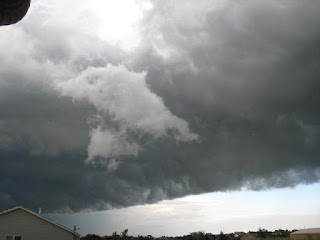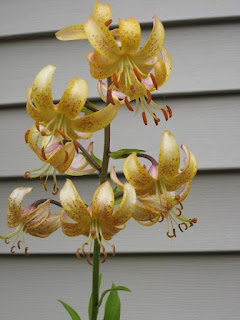I've just finished
The Wild Braid: A Poet Reflects on a Century in the Garden, a book by poet Stanley Kunitz about gardening, the art of being a poet, and being a sensuous old man. It was written with the help of some woman named Genine Lentine--many of the passages occured during and around illnesses toward the end of his remarkable 100 year life. [The man hung out with Rothko and Kline--how cool is that?] This is a short, easy read, filled with photos and poems interspersed among the prose. Lots of good stuff in here.
I give you too many quotes--some may just be interested in his incredible owl story, some on how he deftly compares gardening and poetry, others on his ideas of composing poems / being unusually emo (an artist), and people like me on his insistence that good poets must have a strong libido. I do. Boy, do I ever. Man.
-------------------
--There’s something very important to me about having a kind of relationship, with plants and animals, that can be transacted wholly without language. The warmth of one’s body is a form of communication. The stroke of one’s hand is a means of communication. In the garden those forms are heightened. I have a tendency when I’m walking in the garden to brush the flowers as I go by, anticipating the fragrant eloquence of their response. I get a sense of reciprocity that is very comforting, consoling.
--One day, as I stood under a great chestnut tree deep in the center of the woods, I heard some rustling in the branches. I looked up and saw a family of owls, a mother and four fledglings, all on one branch. The moment I moved, they frantically whisked off.
I vowed I would become a friend of theirs and realized I must not disturb them in any way. I learned if I approached very quietly, advancing just a few steps, then standing still, then advancing a little more, the owls were not intimidated. And then I would reach the chestnut tree and stand under it absolutely motionless for as long as I could, fifteen minutes, half an hour or so.
After doing this day after day for several weeks, I could tell the owls had gained confidence in my presence. Gradually, I dared to raise my arm and lift one of the four babies off its perch and place it on my shoulder for a few minutes and then return it safely. I did that with all of them over a period of weeks and finally made the great maneuver—I extended my arm and lifted them one by one, all five of them, on to my arm. I started with the most familiar one, the mother owl. And then once she was perched there, the others were happy to join. By then they were familiar with my touch. There was no sense of separation; I was part of their life process.
So, with the mother owl and the four little ones perched on my arm I walked gingerly out of the woods and took them home and installed them in the attic where I’d prepared the equivalent of a branch and set out some food to welcome them. They lived there happily, coming and going through the open window, for the remainder of my stay at Wormwood Hill….
--We are all candidates for composting. So we cannot approach the compost heap without a feeling of connection.
--The garden communicates what it shows to you but you also contribute to the garden some of what you are seeking in terms of your own life, your own state of being. One reason a garden can speak to you is that it is both its own reality and a manifestation of the interior life of the mind that imagined it in the beginning.
--And you need the silence. So much of the power of a poem is in what it doesn’t say as much as in what it does say. As when a flower is preparing to bloom, or after it has bloomed, when it is suspending its strengths and its potency and is at rest—or seems to be, its mission to flower and to produce seed having been fulfilled.
--Art conceals and reveals at the same time. Part of the concept of the garden is that you never see it all at once. This I got from my understanding of Japanese gardens, that the way to see a garden is by circling it, by walking through it.
You don’t see the garden as a whole from any point, but you begin to know it by making a tour around it. Then it becomes a garden in the mind, and you become the instrument that defines it, just as you have to create the wholeness of the poem in your mind. Though you learn the meaning of a poem, the sense of a poem, word by word, in the end what you have is a fusion.
In the poem, there is an impulse that moves form line to line, from image to image, but complete revelation is not achieved until the poem arrives at its terminal point, at which time what has been secret before the poem begins to reveal itself, and you have to really meditate on the poem. It’s like someone removing a garment slowly, slowly. What bothers me about so much contemporary poetry is that there is none of that secrecy; it is all exposition, all revelation. I find that to be a diminishing factor.
--One of the great delights of poetry is that when you’re really functioning, you’re tapping the unconscious in a way that is distinct from the ordinary, the customary, use of the mind in daily life. You’re somehow cracking the shell separating you from the unknown.
There’s no formula for accessing the unconscious. the more you enter into the unconscious life, the more you believe in its existence and know it walks with you, the more available it becomes and the doors open faster and longer. It learns you are a friendly host. It manifests itself instead of hiding from your tyrannical presence, intruding on your daily routines, accommodations, domestications.
The unconscious is very much akin to what, in other frameworks, I call WILDERNESS. And it’s very much like the wilderness in that its beasts are not within our control. It resists the forms, the limits, the restraints that civilization itself imposes. I’ve always felt, even as a child, that there was the decorum of the social structure, the family structure, and so forth, and then there was the wild permissiveness of the inner life. I learned I could go anywhere in my inner life.
--The poem, by its very nature, holds the possibility of revelation, and revelation doesn’t come easy. You have to fight for it. There is that moment when you suddenly open a door and enter into the room of the unspeakable. Then you know you’re really speaking.
After you’ve written a poem and you feel you’ve said something that was previously unspeakable, there’s a tremendous sense of being blessed.
--The mystery of the creative process is that the poem is there but NOT there within you, accumulating experience, accumulating images. It needs to be released, but sometimes there are barriers. The poem incites fear; you are coming into truth in the writing of the opem, you are hesitant to explore unfamiliar areas.
You cannot know completely what your obligation is in writing the poem. The primary responsibility is to speak the true word and to distill the complexity of sensitivity that enters into any human experience.
--In a sense, all creativity is a process of giving meaning to what is on a universal scale meaningless. The plant and the poet and the gardener collect these disparate, disorganized raindrops, sun rays, passing birds, and make something formal.
Creativity gives form to what in nature is ambiguous, suggestive. Language wasn’t there at the beginning. It was created after people had gone through all sorts of experiences and needed to become expressive in order to give meaning to the life.
As an artist, you are a representative human being—you have to believe that in order to give your life over to that effort to create something of value. You’re not doing it only to satisfy your open impulses or needs; there is a social imperative. If you solve your problems and speak of them truly, you are of help to others, that’s all. And it becomes a moral obligation.
--A poet without a strong libido almost inevitably belongs to the weaker category; such a poet can carry off a technical effect with a degree of flourish, but the poem does not embody the dominant emotive element in the life process. The poem has to be saturated with impulse and that means getting down to the very tissue of experience. How can this element be absent from poetry without thinning out the poem?
--Feeling is far more important [than reason] in the making of the poem. And the language itself has to be a sensuous instrument; it cannot be a completely rational one. In rhythm and sound, for example, language has the capacity to transcend reason; it’s all like erotic play.
That’s the nature of aesthetic impulse, aesthetic receptivity. Whether you’re walking through the garden or reading a poem, there’s a sense of fulfillment. You’ve gone through a complete chain of experience, changing and communicating with each step and with each line so that you are linked with the phenomenon of time itself. The erotic impulse is so basic to human experience that we can never be free from it, even in old age.
THE ROUND
Light splashed this morning
on the shell-pink anemones
swaying on their tall stems;
down blue-spiked veronica
light flowed in rivulets
over the humps of the honeybees;
this morning I saw light kiss
the silk of the roses
in their second flowering,
my late bloomers
flushed with their brandy.
A curious gladness shook me.
So I have shut the doors of my house,
so I have trudged downstairs to my cell,
so I am sitting in semi-dark
hunched over my desk
with nothing for a view
to tempt me
but a bloated compost heap,
steamy old stinkpile,
under my window;
and I pick my notebook up
and I start to read aloud
the still-wet words I scribbled
on the blotted page:
"Light splashed . . ."
I can scarcely wait till tomorrow
when a new life begins for me,
as it does each day,
as it does each day.

























